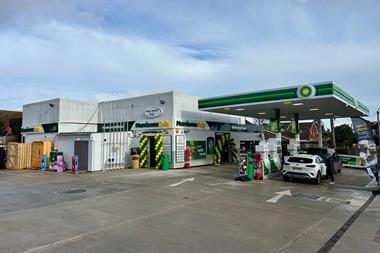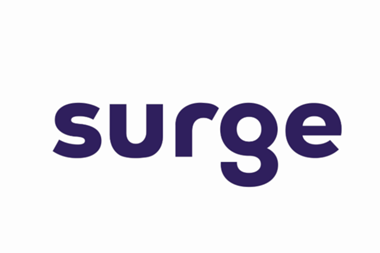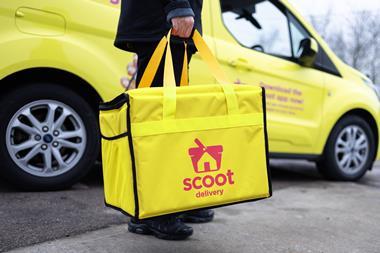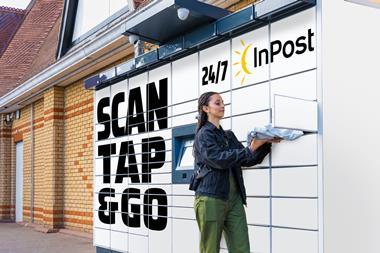
It really, really would be great to be able to look at business and finance events other than the obvious one that’s dominated the year. Take for example the recent announcement that the founders and joint CEO’s of EG Group (the Issa brothers) have just bought Asda from Walmart.
In normal times that would have attracted much more attention and comment than it has, after all, according to Forecourt Trader’s Fuel Market Review 2020 Asda operate some 324 sites across the UK – approximately 4% of UK forecourts - and has a market share of around 8% (by volume). Meanwhile EG control around 390 sites in the UK, which represents a little under 5% of UK forecourts, although it’s much more difficult to establish their market share by volume!
These are not insignificant figures. Can you imagaine the reaction if it had been Walmart/Asda buying 390 sites from EG? There would have been uproar in the forecourt retail industry - demands for an immediate enquiry by the Competition & Markets Authority (CMA), the usual ‘industry representatives’ calling for MPs to take action, etc. But of course, these aren’t normal times. Some industry observers believe that any CMA intervention might involve no more than a handful of sites – between 10 and 15 – having to be disposed of, so it looks as if there’ll be no real shake-out of site numbers.
According to the Fuel Market Review the ‘Big 5’ dealer groups (ie those with more than 100 sites each) owned 1,837 sites out of a total of 8,385 earlier this year. With the Asda deal as it stands, in effect those ‘Big 5’ will now ‘control’ (if not necessarily ‘own’) around 2,160 forecourts. Even assuming that total site numbers haven’t fallen by much so far this year, that’s still over 25% of UK forecourts.
Or take another recent announcement that in the past would have led to a great deal of media speculation (at least within this industry): BP’s move to sell-off a 49% stake in its freehold property interest in 199 company-owned forecourts. Now all of the major oil companies are having a tough time this year (largely of course because of you-know-what…) so naturally anything that frees-up some capital and turns it into cash will be of interest to them - and they did something very similar in Australia last year.
BP stressed in their statement after the deal that “BP remains absolutely committed to the UK market” – and of course we have to take them at their word. But again, if these were ‘normal’ times there would already be fevered speculation concerning when the next announcement would come – that 199 sites were up for disposal – to one or another of the ‘Big 5’ perhaps!
Then looking forward a little - past what is now being predicted to be a ’digital Christmas’ into the start of 2021. The imminent prospect of Kent and Essex being turned into the world’s largest lorry parks, thanks to Brexit – and in particular the complete lack of any agreement or preparation for freight customs handling. It may just sound like a bad joke, but there have been some (serious) predictions that by very early in January, many of the coastal trunk routes in the South East, particularly the M2 and M20 motorways and the A12 and A13 trunk roads, will be part of ’Operation Stack’. In other words, lorry parks. Right up to their junctions with the M25. Every day. For an indefinite period.
If that prospect is too mind-boggling to contemplate (and we couldn’t avoid mentioning you-know-what for ever) there is the news from the Office of National Statistics (ONS) and their most recent ’Business Impact of Coronavirus (COVID-19) Survey’ that pointed out:
- 18% of all UK businesses are at “severe” or “moderate” risk of insolvency.
- 4% had no cash reserves at all
- 23% had less than 3 months’ worth of cash reserves
The really scary bits are that (a) they were referring to all UK business, not just those in particularly badly hit sectors, and (b) their data came from the period between September 21 and October 4; and as we all know, conditions haven’t become better since the start of October.
Those figures are horrendous. Yes, they’ll be distorted a little by businesses that have largely been ‘closed’ for much of the year: think cinema chains, nightclubs, theatres and even football clubs; but for all of that they show what’s happening in the larger economy.
As we’ve noted repeatedly during 2020 (perhaps too often?), petrol retailing has been less severely affected by the Covid crisis than most other sectors of the UK economy. But that doesn’t mean that everything’s OK: volumes are down across the board and while shop sales are possibly making up some of that drop, they’re not likely to restore overall profitability for the year to anything close to what each site operator would have predicted just 12 months ago.
While the government keep announcing emergency support measures for businesses, it’s clear that each new package is slightly less ‘generous’ than the ones which came before. It should also be obvious that if the larger economy is heading into ever-deeper problems, there will be an adverse impact even on those sectors which have so far escaped the worst.
Looking at that ONS survey again, it should be a reminder to all business owners/operators that it’s a sensible time to prepare an up-to-date cashflow and profitability forecast. A realistic one that includes several prospective risk levels for (say) the first half of 2021.
After all, unless you have some idea of what the business will need to survive over the coming months, you won’t be in a position to know how much help you might need – and there is potential help available, from Government and/or banks.
As always, if you need assistance with preparing a forecast, or simply want to run your own one past an ‘expert eye’, this would be a good time to speak to your accountant.

































No comments yet